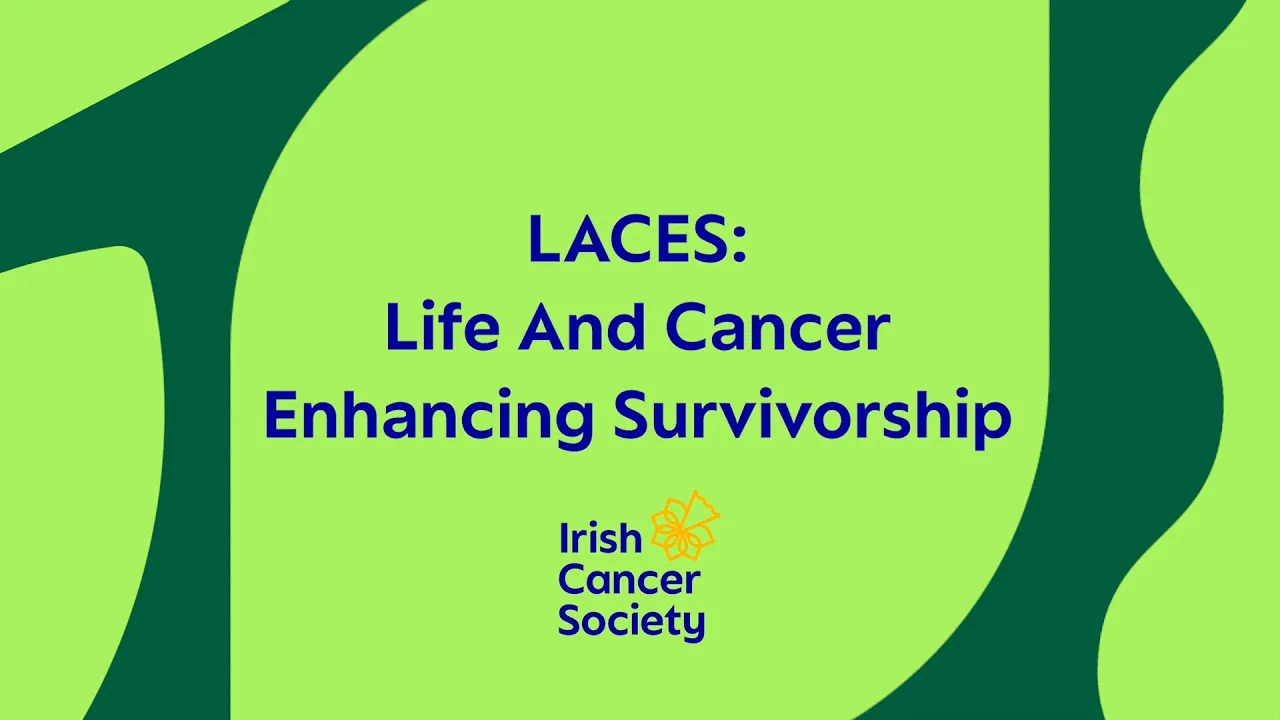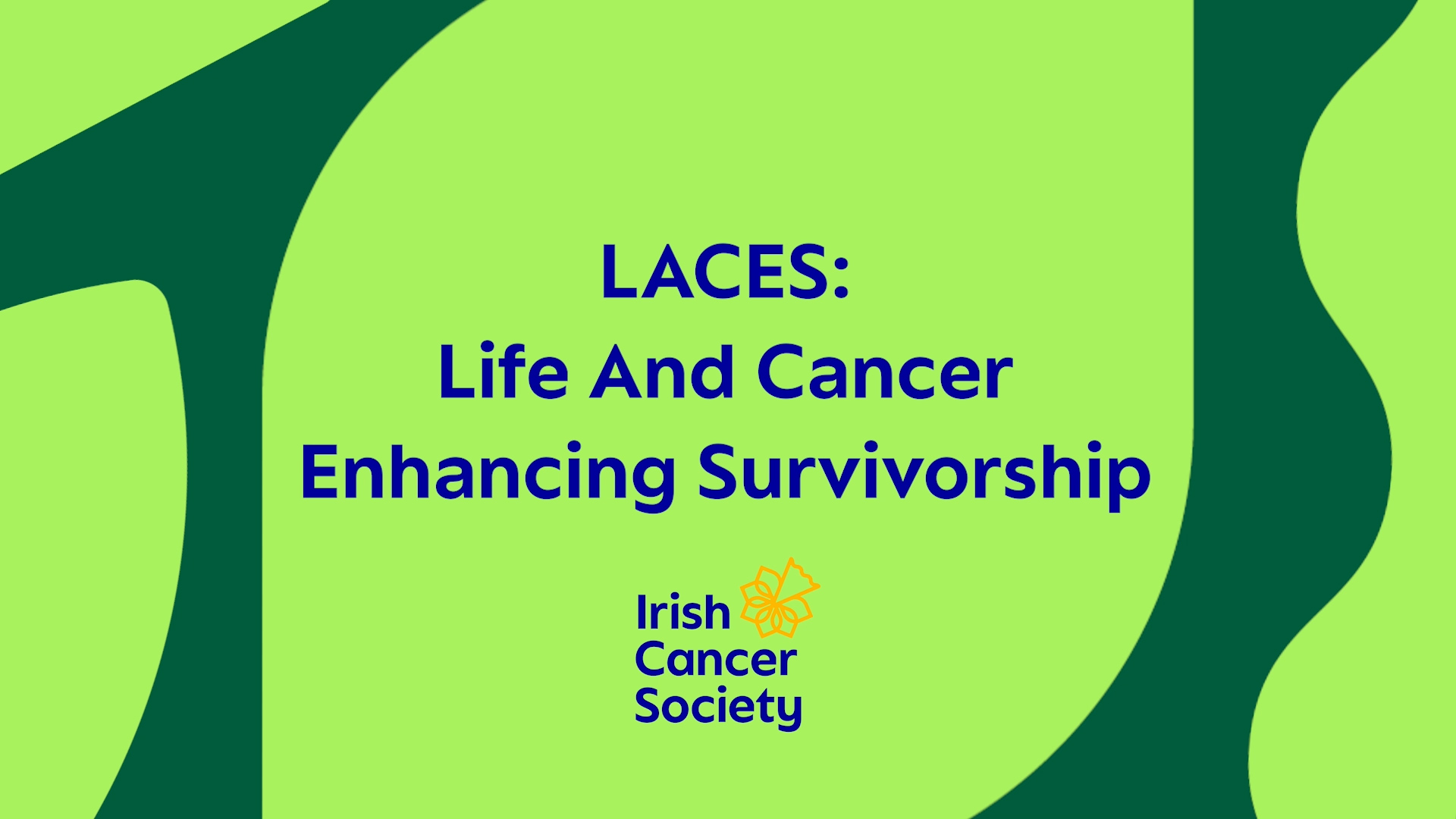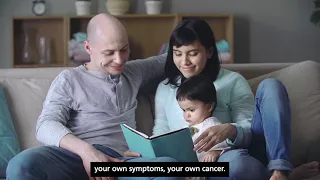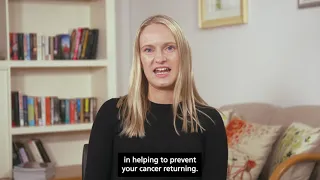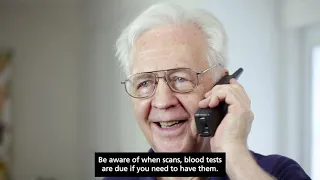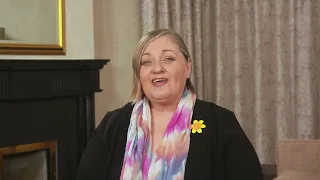LACES 7: Self-management
LACES: Life And Cancer - Enhancing Survivorship. A workshop from the Irish Cancer Society. Part 7: Self-management
0:01
LACES, Life And Cancer - Enhancing Survivorship Workshop.
0:14
Module 7: Self-Management – In this module we will talk about the importance of being actively involved in your treatment and follow-up care.
0:29
Question: What does post-cancer follow-up care usually involve?
0:35
Post-cancer follow-up care is based on international best practice guidelines. It varies from cancer type to cancer type what that your follow-up will be, but generally it's meeting with your oncologist, your surgeon, your physician, your radiation specialist, on a scheduled basis, and you'll be informed of this when your treatment is finished.
0:58
You'll be given an end-of-treatment plan. It also involves cancer screening, be that scans, colonoscopies, blood tests.
1:11
Question: What will happen at these appointments?
1:17
At these appointments you're assessed for any new signs or symptoms that may have developed since your last visit.
1:25
In between, it's a good idea if you do record any new signs or symptoms, or any changes to your normal body habit that have occurred, and if you write these down, you'll be able to discuss them with your medical practitioner when you attend.
1:42
Question: What will happen with the results?
1:48
Following your consultation, a letter is dictated by your physician or your specialist, and it's sent to your GP.
1:56
The GP then has full details of your cancer type, your treatment plan, your follow-up plan, so that if you have any issues regarding your cancer, or the treatment, or your follow-up, you can go and discuss this with your GP.
2:13
Question: I am worried about a particular pain. What should I do?
2:18
Following on from your treatment, it’s very important to be aware of your own body and what's normal for you, so that you can immediately recognise anything that's abnormal. The best person to report any of these new symptoms to is your GP.
2:33
Not all symptoms are related to your cancer or your treatment. The GP then has access through the NCCP Rapid Access Clinics to gain entry immediately to the acute hospital services.
2:49
Question: Are all side effects the same?
2:55
Treatments are personalised and they're tailored to suit and treat the individual cancer as well as the individual person. No two people will experience the same side-effects, even if they receive the same drugs.
3:10
So, it's better to speak to your healthcare professional about any signs or symptoms that you're concerned about. It's a process, this recovery, so be patient. You will recover in time.
3:22
Some of the side-effects such as memory loss and fatigue can last a little bit longer. You can do some exercises or get some advice on coping with these symptoms to help you through.
3:36
Question: Sometimes doctors use words I don't understand. What can I do?
3:42
During your appointment, if there is anything that you do not understand, please ask the healthcare provider to explain to you what the term means, so that you are aware.
3:53
You can also discuss any of this terminology with your GP because they will be kept up-to-date on your cancer diagnosis, your treatment and your treatment plan.
4:04
Question: Will self-care routines look the same for everybody?
4:10
We advise patients that they have been through a life-altering process. They need to acknowledge this, their families are aware of it, it will be quite difficult to adjust back to a normal lifestyle straight away. It takes time, be patient.
4:26
Get the supports that are out there for you. Talk to people about it, talk to your friends. Join up in groups or activities that are available locally to you.
4:37
Question: Is all information about my cancer valuable?
4:43
I think we're all very much aware at the moment in the media about fake news, and this is true for cancer diagnosis as well. People research cancer on the internet and not always what you see is what is true.
4:57
If you need to discuss your cancer treatment or your diagnosis, discuss it with a medical professional who can advise you of websites that are appropriate and are factual.
5:10
Question: What steps can I take to feel more in control of my life and my health?
5:16
Have a record of your follow-up treatment schedule. Be aware of when your appointments are due. If you do not receive notification of these appointments, contact the department secretary and they'll reschedule your appointment.
5:31
Be aware of when scans, blood tests are due, if you need to have them. You need to be aware of this. It's your body – look after it.
5:44
For more information, please visit www.cancer.ie/LACES
LACES: Life And Cancer – Enhancing Survivorship playlist
